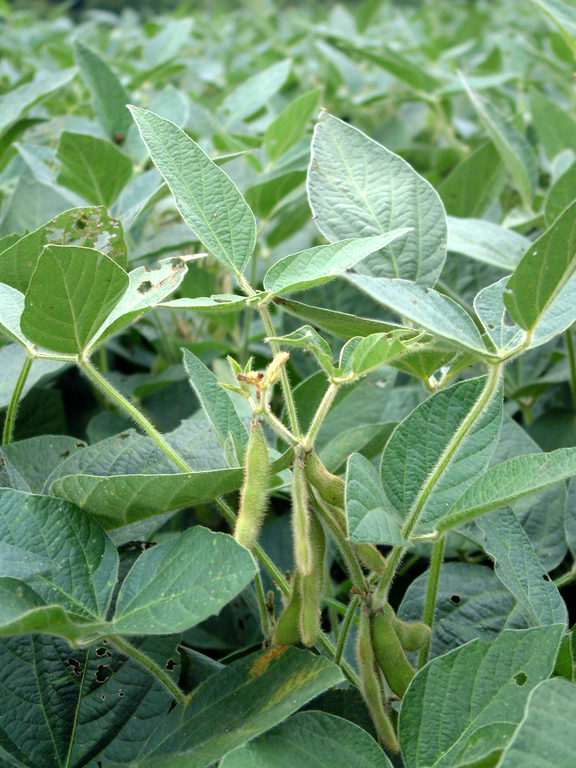No More Neonic-Coated Soybean Seeds!

Monsanto sells soybean seeds coated in neonicotinoids (a
class of pesticides directly linked to the mass die-off of
honeybees) under pretense of helping farmers increase their
yields.
But according to the U.S. Environmental Protection Agency (EPA),
pre-treating soybean seeds with neonics doesn’t deliver on that
promise. And now, new evidence suggests that not only do
pretreated soybean seeds not provide any benefit to farmers,
they may actually cause a decrease in crop yields.
Take Action: Tell the EPA: No More Neonic-Coated Soybean
Seeds!
In October 2014, the EPA, after a long-overdue analysis, issued
a
report concluding that pre-treating soybean seeds with
neonics provided “little or no overall benefits to soybean
production in most situations.”
According to EPA's analysis, neonicotinoid seed coatings are used on more than 23 million acres of soybeans in the U.S., and more than 1 million pounds of the insecticides were applied to soybean seeds from 2008 - 2012.
The EPA analysis and report followed a report by the Center for Food Safety (CFS) which drew the same conclusion, not only for soybean seeds, but also for other genetically engineered crop seeds. Titled “Heavy Costs: Weighing the Value of Neonicotinoid Insecticides in Agriculture,” the CFS report summarized 19 articles from scientific journals that studied the relationship between neonic treatments and actual yields of major US crops, including canola, corn, dry beans, soybeans, and wheat.
The CFS report concluded that neonics are “massively overused in the U.S., without corresponding yield.”
It’s bad enough that neonics, which poison soils, waterways and are allowed at EPA-defined tolerances to remain as residue on human foods, are “massively overused” without any real benefit. But a new study suggests that neonics actually decrease yields.
As reported by Rabble.ca, the use of thiomethoxam, one of three neonics used to pretreat soybean seeds, may be hurting farmers:
Thiomethoxam, a neonicotinoid nerve poison, is widely applied to soybeans as a seed coating. After a bean seed is planted and it germinates and grows into a plant, every cell of the plant becomes infused with the neonicotinoid pesticide. In theory, when a pest feeds on the soybean plant, it dies from neonicotinoid pesticide exposure.
However, a 2014 study by Margaret Douglas of Pennsylvania State University and coworkers in the Journal of Applied Ecology demonstrates that slugs—a major soybean pest—are unaffected when they feed on neonicotinoid-treated soybean plants. However, beneficial ground beetles—naturally abundant predators that eat slugs and normally keep them in check—experience seizures, paralysis and death when they eat slugs from plants containing these nerve poisons.
With so much growing evidence of how destructive neonics are
to pollinators and the environment (and therefore, humans), and
how ineffective they are, why is Monsanto still selling
neonic-coated seeds?
Profits. According to a
report by Friends of the Earth, the neonic industry is worth
$2.6 billion. Monsanto sales in its “Seeds and Genomics” segment
netted $9.8 billion in 2012, according to FOE. That figure
includes sales of Monsanto’s “Acceleron®” as a “designer seed
treatment” for its genetically-modified corn, soy and cotton.
Acceleron contains the neonics imidacloprid and clothianadin.
Who else profits? The manufacturers of neonics. FOE reports that
Bayer recorded $1.1 billion (2009) in sales of imidacloprid, and
another $439 million that same year in sales of clothianidin.
Meanwhile Syngenta reported 2009 sales of $627 million of its
neonic product, thiamethoxam.
The EPA has extended the deadline for comments on its
analysis of pretreating soybeans with neonics until January 23.
That extension allowed Bayer to publish its own “white paper”
claiming that the EPA, and the scientists cited by CFS, are all
wrong. Will the EPA heed the scientists? Or side with the
Bayer-funded research?
Please tell the EPA: Stop protecting corporate profits. No more
neonic-treated soybean seeds!
Limit neonicotinoid use by prohibiting sales of neonicotinoid-treated soybean seeds.
I am writing to ask that you prohibit the sales of neonicotinoid-treated soybean seeds.
By your own analysis, the practice of treating soybean seeds with neonics provides no benefit to farmers.
The EPA analysis reinforces the conclusion of a report issued in March 2014, by the Center for Food Safety, which analyzed 19 scientific studies proving the ineffectiveness of pre-treating seeds with neonics.
Another recent study, conducted by Margaret Douglas of Pennsylvania State University, and published in the Journal of Applied Ecology, suggests that pretreating soybean seeds with thiomethoxam actually decreases yields, thus providing a net negative benefit to farmers.
There is little debate anymore that the use of neonics is having a devastating impact on the honeybee population, and on other pollinators. Moreover, neonics are being found in drinking water, and on certain fruits and vegetables, including, according to the USDA, on peaches sold as baby food.
It’s time to stop protecting corporate profits and start protecting public health, and the health of our ecosystem. Please heed your own analysis, and force corporations to end the practice of pretreating seeds with neonics. Thank you.
Organic Consumers Association · 6771 South Silver Hill Drive, Finland MN 55603
http://salsa3.salsalabs.com/o/50865/p/dia/action3/common/public/?action_KEY=15387